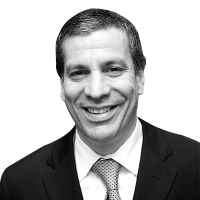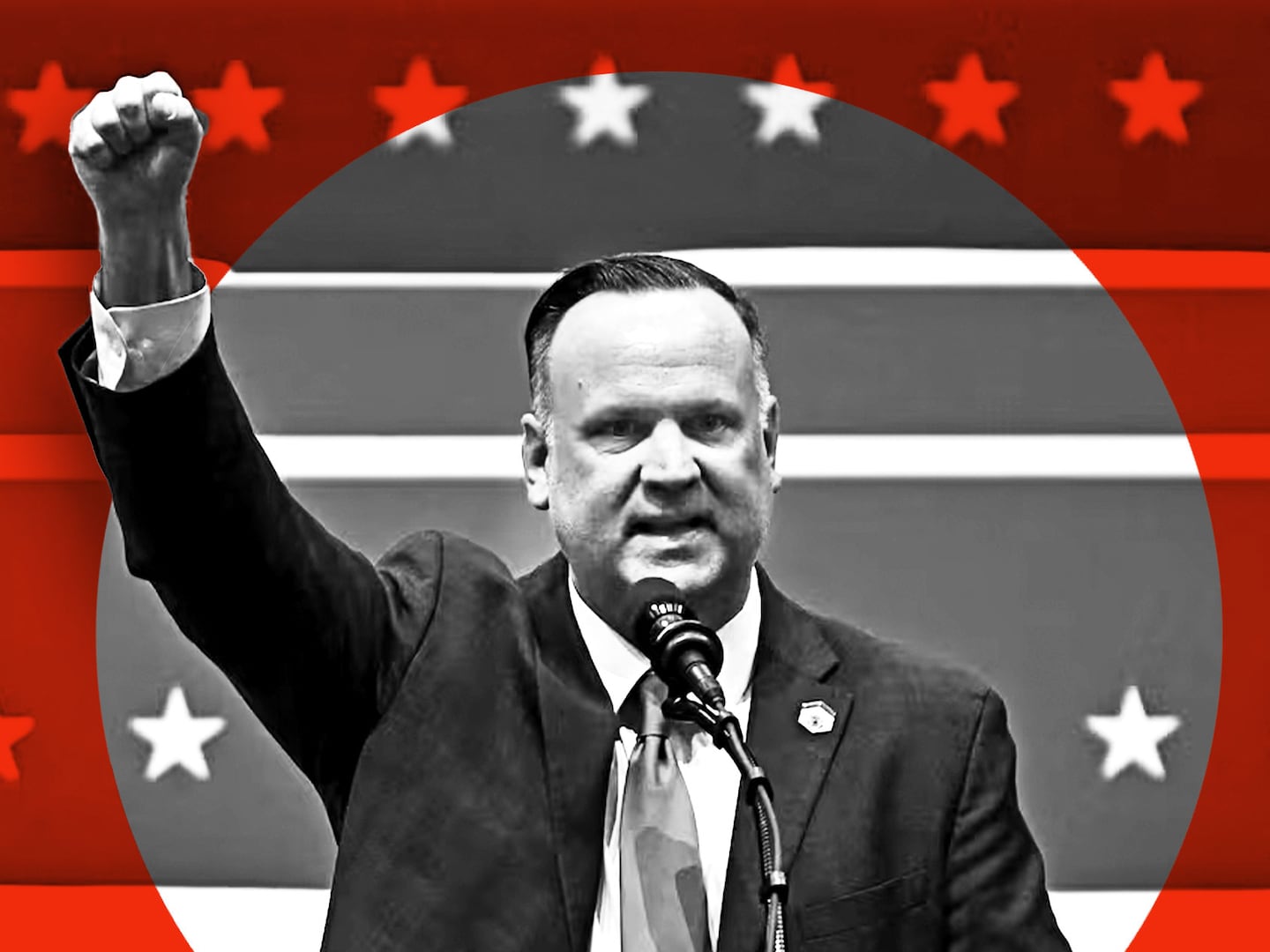
Timing is everything on Wall Street. Just ask Bank of America CEO Ken Lewis, who purchased Merrill Lynch at a deal initially valued at $29 billion—just before Merrill announced a $15 billion fourth-quarter loss that nearly cratered the deal and forced Lewis to seek government assistance. And now we can ask the same question of Dick Parsons, the former head of Time Warner, who is taking over as chairman of Citigroup at a time when pressure is building on the big bank and a possible government nationalization is looming.
Sources inside Citigroup tell me Parsons, who’s been on Citi’s board since 1996, has been itching for the chairman's job for months now. They say he was critical of the former chairman, an ineffectual investment banker named Sir Win Bischoff, and he wasn't that crazy about the job of Citigroup's CEO Vikram Pandit, who inherited a mess of massive losses from his predecessors and made the least of it. Inside the company, many top executives snickered when they heard about Parsons' enhanced role as chairman and new status as savior. That's because they believe he's one of the big reasons Citigroup is in the shape it’s in today. A Citigroup spokesman didn't return repeated calls for comment.
Parsons was part of a Citigroup board that allowed former CEO Sandy Weill to run one of the most ethically challenged firms on Wall Street.
Judging from the reception from the market, Pandit’s days appear to be numbered. And with Pandit in trouble—some people inside Citigroup tell me he has just a few months to show some progress in turning the bank around or the government may just step in and take it over—Parsons could soon be running the show. And that, I am sorry to say, would make a bad situation even worse.
It’s hard not to be impressed with Parsons—he’s one of those guys with a great resume, he's run a big company, served on boards of major corporations, worked for at least one top law firm, he’s personally charming and he has strong political connections—but he has never really accomplished anything great. (Unless you count running Dime Bank in the 1980s. Remember that? I didn’t think so.) In the 1990s, Parsons supported his old law-firm colleague Rudy Giuliani as New York City mayor and ran his transition committee. He also landed on the Time Warner board before becoming part of the management team that engineered one of the worst mergers in modern corporate history, between the media giant and the former Internet darling, AOL. Parsons can't take all of the blame for that ill-fated merger, in which shares fell like a rock almost from the moment the deal was announced. That prize goes to Gerry Levin and Steve Case, the men primarily responsible for the tragic combination of old media and new. But Parsons was there when the combination was floundering and when the marriage truly fell apart, he was named CEO and asked to reverse the decline of a once-storied empire.
Much as he’s being asked to do now with Citi. Parsons was part of a Citigroup board that allowed former CEO Sandy Weill to run one of the most ethically challenged firms on Wall Street. Beyond that, when it was obvious that Citigroup's financial supermarket wasn't working—Weill never integrated its far-flung operations so that its services could be "cross sold" to various clients—he and his fellow board members, including the former Treasury Secretary Robert Rubin, did nothing to revamp the firm's operations.
In fact, when Weill left the firm following all the ethical lapses, billions of dollars paid in fines and settlements, and unfinished mergers, Parsons stood behind the appointment of one of the least-qualified CEOs ever to run a major Wall Street firm—Charles "Chuck" Prince—who had a great resume if you tapped him to run a large law firm. Prince was Citi's corporate lawyer for years and did a masterful job protecting Weill from regulators, particularly the former New York State Attorney General Eliot Spitzer, who investigated Weill's actions as part of his inquiry into fraudulent stock ratings.
With Prince in his corner, Weill was never charged. That was the good part for Citi; the bad part was that soon thereafter, Prince became CEO with Parsons’ blessing, and spent the next five years allowing the bank to purchase hundreds of billions of dollars in risky assets that continue to produce losses to this day. Not only did Parsons appoint Prince, but he and Rubin and the entire board of directors appeared clueless about the extent of the firm's wild roll-of-the-dice in the riskiest part of the securities market: purchasing and holding on Citi's books subprime debt.
When Pandit replaced Prince in late 2007, he was supposed to clean things up and take Citi to the next level. Rather than break up Citi into smaller companies—as many analysts had recommended—Pandit declared that the universal bank still made economic sense. But Pandit had many enablers for this fatefully wrong-headed decision: his board of directors. One was Robert Rubin, a bright guy, experienced in finance, who failed to understand the magnitude of the events facing Citigroup and is no longer part of the firm. Another was Dick Parsons, also a nice man, experienced in finance, who failed to understand the magnitude of the problems facing Citigroup, and has now been asked to save it.
Good luck, Mr. Parsons—but don’t be surprised if investors remain very nervous about the future.
Charles Gasparino appears as a daily member of CNBC's ensemble. Gasparino, in his role as on-air editor, provides reports based on his reporting throughout the day and has broken some of the biggest stories affecting the financial markets in recent months. He is also a columnist for Trader Monthly Magazine, and a freelance writer for the New York Post, Forbes and other publications.






